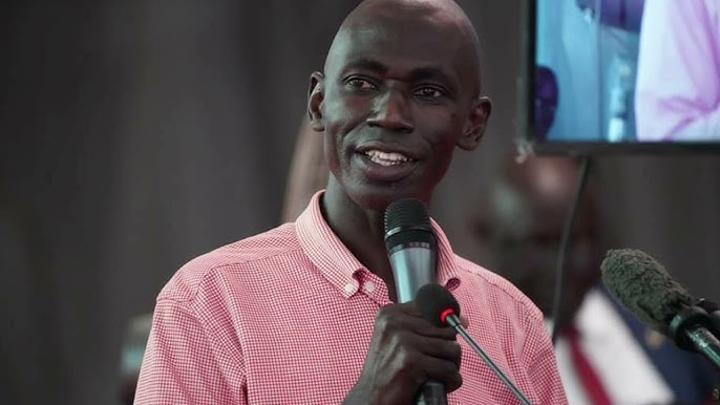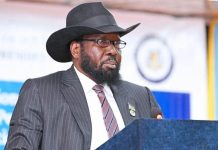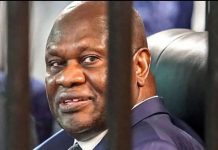Africa-Press – South-Sudan. South Sudanese activist Edmund Yakani said President Salva Kiir’s moves to reach separate agreements with different armed groups may not bring lasting peace to the country and risk undermining the implementation of the 2018 peace deal.
Yakani, executive director of the Juba-based Community Empowerment for Progress Organisation (CEPO), made the remarks after Kiir’s Sudan People’s Liberation Movement-In Government (SPLM-IG) signed a peace deal in Port Sudan with the rebel group SPLM-IO Kitgwang, led by General Simon Gatwech Dual.
“We need our government to really abstain from this culture of searching for peace in pieces. Because this is now their fourth agreement,” the activist said in a phone interview with Sudan’s Post on Thursday.
“You have the agreement of R-ARCiSS. You have the agreement of Kitgwang under Simon Gatwech, and you have Tumaini coming on the way. So it’s going to be our culture of having peace in pieces,” he added.
The Port Sudan peace agreement has sparked concerns with the main opposition Sudan People’s Liberation Movement-In Opposition (SPLM-IO), led by First Vice President Riek Machar, which accuses Kiir’s SPLM-IG of plotting to overthrow the 2018 R-ARCiSS agreement that ended the civil war, which erupted in 2013.
The SPLM-IO contests the agreement’s provision that will see Dual appointed to the revived position of deputy commander-in-chief, a post previously created in 2006 and abolished in 2008, after its first holder, General Paulino Matip, died.
The group argues that the 2018 peace agreement designates Machar as the sole deputy to Kiir.
While any attempt at including armed opposition groups in the peace process is welcome, Yakani said such agreements should be aligned with the Revitalised Agreement on the Resolution of Conflict in South Sudan (R-ARCiSS) by including its signatories to ensure their input.
He noted that the Port Sudan agreement may contradict the R-ARCiSS, especially the security arrangements, which require the unification of opposition forces with government soldiers to form one national army.
“It is also in contradiction of the R-ARCiSS. It’s in contradiction of the R-ARCiSS, specifically in terms of the security arrangement,” he said.
“When you look at the element of unification of forces, it’s a contradiction to that. So the (SPLM)-IO have genuine grounds for questioning the credibility of the agreement. They really have huge, they have their genuine grounds for questioning the credibility,” he said, echoing concerns by the main opposition party.
Yakani appealed to the parties to sit down and discuss ways to reach a consensus so that their differences do not impact the ongoing implementation of the R-ARCiSS.
“I think number one is that the parties to the R-ARCiSS need to have a consensus conference on how to harmonize these agreements because these agreements require harmonization,” he said.
“It needs to be harmonized in a manner that at least the R-ARCiSS goes in line with an agreement that is coming up or complementary. So the search for peace and stability is ultimately a goal that all of us need,” he said.
For More News And Analysis About South-Sudan Follow Africa-Press






